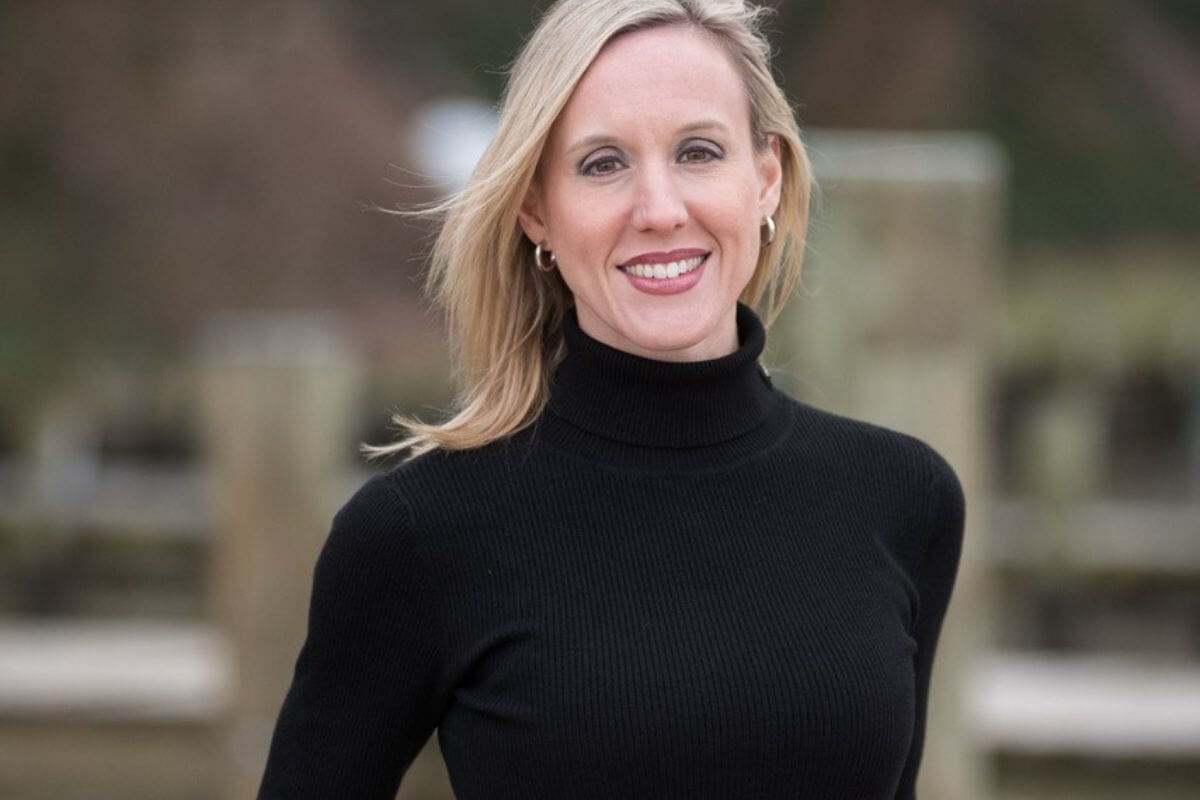Emily Bleeker is a seasoned writer and former educator who preferred to keep her stories personal. After battling a rare form of cancer, she decided to pursue her passion for writing and went on to publish seven novels. Her most recently released novel, When We Were Enemies, released late last year to a tremendous audience of avid readers. Discover how her story came to be and how you can use your own family’s history as inspiration for your next novel.

When We Were Enemies by Emily Bleeker
In 1943, Vivian left her small Indiana town to help support troops in WWII. She was sent to an Italian POW camp as a translator and went on to become a sensational singer in the USO and fell in love with a soldier. This launched her career to become a Hollywood icon and set her, and her future family, up for a life in the spotlight. But this Cinderella story is not all it seems. Years later, her granddaughter Elise is bombarded by a camera crew, telling her and her family that they are making a documentary about Vivian’s life. Elise and her family must keep secrets from generations before them hidden if they want to protect their family and Vivian’s reputation, as the secret threatens to wreck havoc on the family.
Buy the book now: Bookshop.com | Amazon | Barnes & Noble
Guest post by Emily Bleeker
When I was seventeen years old, my paternal grandma Elizabeth moved in with our family of six. We cobbled together a makeshift bedroom in the one-car garage of our two-bedroom, one and half-bath townhome, insulating the unfinished space against the frigid Chicago winters with mattresses and blankets. Grandma Elizabeth had lived all of her seventy-three years in the balmy heat of the deep south, but the chill of the Midwest in November did nothing to dampen her warm, southern drawl and welcoming personality. I’d always lived far away from my grandparents, only seeing them once a year at Thanksgiving or Christmas, so it wasn’t until I was given the task of helping my grandmother with her bath time that I really got to know her.
The first time I half-carried my grandma up the stairs to our only bathtub she whispered, “Don’t worry, dear, I’m not shy.” I didn’t know what she meant until we were behind locked doors, and the tub was full of warm water. My ever-so prim and proper grandma shed her housecoat without hesitation and stood in front of me completely nude. Blushing, I helped her into the tub, averting my gaze. She pretended not to notice my embarrassment as I assisted her with washing up and helped her settle into the warm water to soak.
Seeing my grandmother naked on a regular basis wasn’t exactly on my bucket list as a teenager but here I was, surrounded by bubbles and the humidity of the small bathroom; my grandmother’s emotional vulnerability matched by her physical exposure. She told me of driving past a truck filled with dead bodies after Hurricane Camille destroyed the Mississippi coast. She told me how she struggled to be married to a man who was a genius and as well as a destructive alcoholic. She told me how painful it was for her to watch her son waste away, a victim of the AIDS epidemic, and how her friendship with his life partner became an unexpected avenue for addressing her grief. She told me stories of addiction, adultery, mental illness, and murder; the true histories of people I hardly knew other than by name or from a family picture. I was touched and enthralled.
Since that time, I’ve found family history to be a rich source of inspiration for my creativity. None of the books I’ve written are retellings of exact experiences from my family’s past, but many have been inspired or enriched by the history that’s embedded in these stories. I learned from the hours I spent listening to my grandmother that everyone has the same well to draw from in their own lives.
Here are some tips for using your family history to inspire your next story:
Listen— Seek opportunities to listen to the retellings of family stories. Record, if you have permission. Always. I still have tapes of my grandmother retelling the moments from her life and it’s a priceless resource.
Ask questions—Ask what daily life was like. Ask about funny stories or experiences, heartaches and romances. Ask for photographs and names, dates, timelines, and towns. You’d be surprised how often you’ll get a great story back and details you never expected.
Visit—Return to the places you’ve heard stories about. Take them in. Walk the same streets as your ancestors. Visit cemeteries and take pictures of headstones.
Research—This is a topic that could take months to dive into, but it starts with knowing what you want to learn about. There are many, many online family history sites, local courthouses, and land offices that can give a lot of information. Newspapers are great resources and can be found online and via library microfilm. General research of towns, time periods, or historically important moments can also be enriching in your search for inspiration, as well as reading books, both fiction and non-fiction, and taking in related media.
Connect—Write, call, or visit family who are willing to swap stories. It can also be helpful to join social media groups from specific towns or from the same group or place of service as your family members.
Write—It doesn’t have to be a whole novel and it doesn’t have to hold to the facts of the passed down stories exactly, but utilizing the lived experiences of family can add layers of depth and reality to your writing. As well as continuing the beautiful cycle of sharing with the next generation the lessons of those who came before.
My conversations with my grandmother opened a curiosity inside of me and soon our chats moved out of the bathroom and into her bedroom. I brought a tape recorder with me, and I’d rub lotion into her swollen and cracked legs and feet as I soaked in every story, every turn of phrase, every brush of inspiration and advice, wanting to know the world through my grandmother’s eyes. Her stories opened my creative mind in ways I’m still uncovering twenty-five years later, including the tale of a young priest she met as a secretary at the Italian POW camp where she worked in 1943. Her experiences inspired my latest novel WHEN WE WERE ENEMIES, and it’s still a part of her I don’t have to say goodbye to.
I only had the opportunity to live with her for one year, but I carry her stories forever and share them on occasion with my father and siblings. Sometimes, when I’m very lucky, in a book.














Leave A Comment